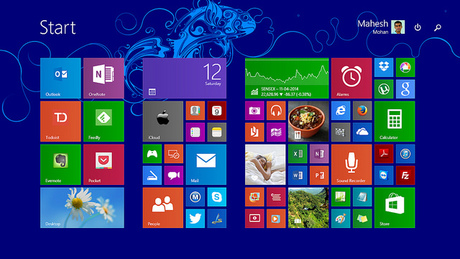Microsoft enforces "new world order" with 8.1 Update

Microsoft ruffled some feathers last week when it announced it will end support for un-upgraded versions of Windows 8.1 for consumers, starting from 13 May.
Starting with May’s first Patch Tuesday, consumers using Windows 8.1 who have not upgraded to the new Windows 8.1 Update will no longer be able to download security updates, the company announced.
Windows 8.1 Update is a cumulative update that includes all previous security and non-security updates to Windows 8.1, as well as further changes to the UI designed to improve the experience for non-touchscreen users. It was released on 8 April.
Microsoft had originally intended to end support for enterprises on this date as well but, following complaints, the software giant capitulated and extended the deadline to August.
In a blog post, Microsoft Windows Communication Manager Brandon LeBlanc said the vast majority of consumer customers have automatic updates turned on and so won’t even notice the issue. But he said for consumer customers with manual updates switched on, Windows 8.1 Update will be the only option offered through Windows Update until it is installed.
This means Microsoft had originally intended to give both enterprise and consumer users just a five-week window to install the new update or lose access to potentially critical security patches. PC Mag notes that Microsoft has traditionally given businesses 24 months to install a service pack update.
Adding to the pressure on Microsoft to extend support for enterprise customers, the initial release of Windows 8.1 Update to users of Windows Server Update Services 3.0 SP2 (Service Pack 2) created an encryption mismatch that could potentially prevent updated machines from downloading future patches. A fix was released a day later.
In a strange twist, Microsoft’s product lifecycle search page states that the company plans to support Windows 8.0 until January 2016.
Microsoft’s surprise announcement elicited negative reactions from some tech commentators. In a blog post, security consultant Graham Cluley griped that people who may not like the UI and other changes Microsoft has made in Windows 8.1 Update are being offered no option to skip the release and still receive basic security patches.
“Whether you like Microsoft’s high-pressure tactics or not, you’re swimming against the tide if you want to skip the Windows 8.1 Update,” he said. “You cannot afford to miss out on receiving your Windows security updates, so you’ll just have to adjust to the new world order - and hopefully find Microsoft’s changes to the way Windows 8.1 works a positive step.”
In an article for The Conversation, Griffith University lecturer in applied ethics and socio-technical studies David Tuffley said that Microsoft is being “authoritarian” in its efforts to coerce people into upgrading. But he added that the hard-line approach is “a high-stakes gamble that may yet pay off for the company - as the old saying goes, ‘you have to risk going too far to discover just how far you can really go’”.
The Register has characterised Microsoft’s move as an attempt to “bully customers into applying the Windows 8.1 Update by threatening to cut them off from future security updates if they don't”. It pointed to rumours that another major Windows 8.1 update is coming around October as evidence that the company is following former CEO Steve Ballmer’s rapid release strategy.
BetaNews resident staff writer Mihaita Bamburic took the opposite perspective. “The our-way-or-the-highway approach that Microsoft takes is a welcome change, as Windows users are not willing to move quickly to something better, even when it is free,” he wrote.
The Inquirer’s Chris Merriman meanwhile speculated that with the decision, Microsoft may be attempting to avoid a repeat of the fragmentation battle that has dogged Android.
Microsoft finally ended support for Windows XP last week, nearly 13 years after the OS launched.
Why we need to redefine cybersecurity success to support CISOs
When Notifiable Data Breaches statistics are released we should look at the nature of the...
Is 2026 the year of identity? Just follow the money
What $40 billion in cyber acquisitions says about the future of identity security.
Proactive cybersecurity must lead innovation in Australia’s AI future
AI presents extraordinary opportunities for productivity, innovation and growth but it also...




